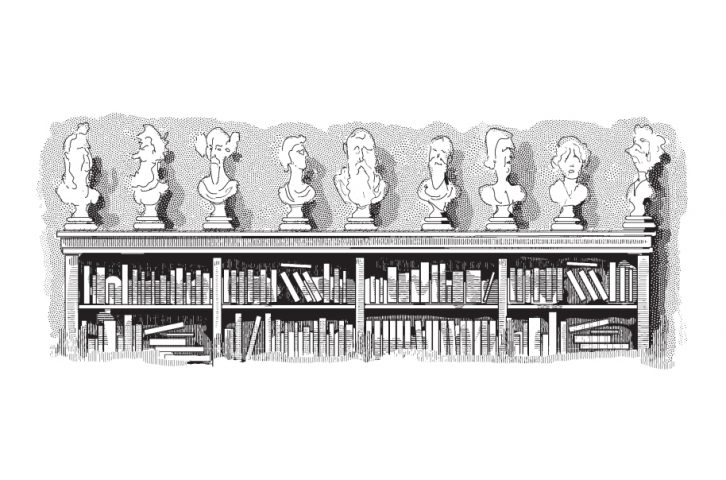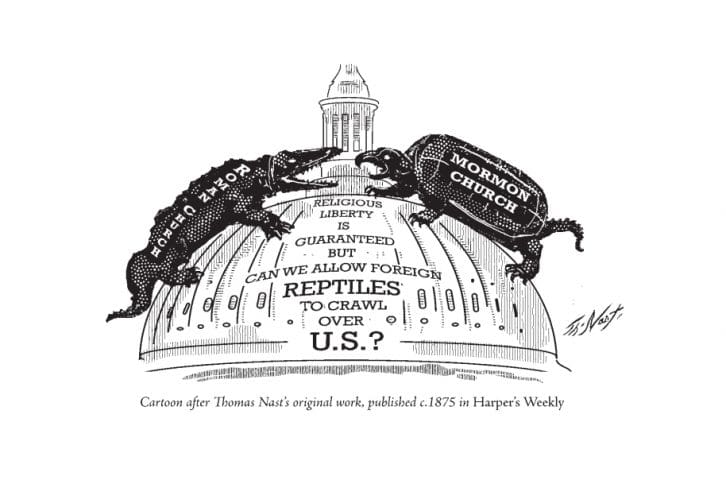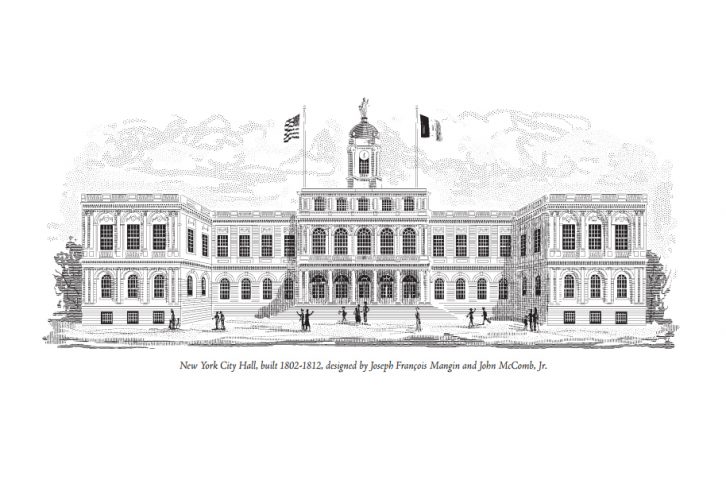Books Reviewed
A review of The New Oxford Book of Literary Anecdotes , edited by John Gross
, edited by John Gross
The anecdote is generally lighter than a parable and weightier than a joke, less misleading than rumor and more entertaining than testimony. It is a story whose subject cannot be ghosts, fish, or cock-and-bull, but only people, preferably famous ones. Finally, it must be neat, pointed, and self-contained. The appeal of the literary anecdote, John Gross tells us in his New Oxford Book of them, is that "if the writer is someone whom we have read, or whose legend has touched our imagination, we are likely to bring a whole complex of feelings to bear on the story." Here, for instance, as recounted by a biographer, is Matthew Arnold, supreme critic of the Victorian Age, quizzing children in his job as school inspector:
"Well, my little man…and how do you spell dog?" "Please sir, d-o-g." "Capital, very good indeed. I couldn't do it better myself. And now let us go a little further, and see if we can spell cat." (Chorus excitedly,) "C-A-T." "Now, this is really excellent."
It is not easy to have a supreme critic in a literary age as fragmented and anti-heroic as ours, but John Gross perhaps comes as close as one can. He is the distinguished author of The Rise and Fall of the Man of Lettersand A Double Thread (his charming memoir), the former editor of the Times Literary Supplement, and editor of After Shakespeare (an inexhaustible mine of great writers commenting on the poet), the New Oxford Book of English Prose, theOxford Book of Aphorisms, and the Oxford Book of Essays. Now, in this anthology, he arranges over 800 anecdotes about 338 writers into 353 delightful pages.
The subjects of Gross's anecdotes are largely canonic authors writing in English. They span more than six centuries, from Geoffrey Chaucer, fined two shillings by a London court for striking a friar, to J.K. Rowling, granted an injunction by a London court against thieves of an unreleased Harry Potter novel. We see authors as precocious striplings (a four-year-old Thomas Macaulay reassures a lady who spilled coffee on him that "the agony is abated"), and dying geniuses (Jonathan Swift, his mind almost gone, mumbles in a final glimmer of self-knowledge, "I am a fool"). They do everything from stirring pots in their kitchens (Emily Dickinson) to killing their wives (William Burroughs).
With Gross amiably at our elbow, we drift into a London club as Anthony Trollope scribbles away, and slip into Thomas Hobbes's chamber as he sings in bed each night to fortify his health. Reclining under a plum tree on a spring morning, John Keats writes a few lines to a nightingale and tosses them aside; only a friend's reverence saves them to become the classic ode. Henry David Thoreau overhears an aunt complain about his ignoring a book she gave him: "Think of it! He stood half an hour today to hear the frogs croak, and he wouldn't read the life of Chalmers."
Jane Austen's loyal readers will enjoy her reply to a retainer of the House of Saxe Cobourg who had presumed to suggest a theme in return for possible patronage:
You are very kind in your hints as to the sort of composition which might recommend me at present, and I am fully sensible that an historical romance, founded on the House of Saxe Cobourg, might be much more to the purpose of profit or popularity than such pictures of domestic life in country villages as I deal in. But I could no more write a romance than an epic poem. I could not sit seriously down to write a serious romance under any other motive than to save my life; and if it were indispensable for me to keep it up and never relax into laughing at myself or at other people, I am sure I should be hung before I had finished the first chapter. No, I must keep to my own style and go on in my own way; and though I may never succeed again in that [she had just published Emma], I am convinced that I should totally fail in any other.
We love P.G. Wodehouse – and rush out to buy twelve more of his books—when he parries, in his inimitable way, a correspondent pen—named "Indignant" who considers him overrated:
I do not wish to labour this point, but I must draw Indignant's attention to a letter in The Times from Mr Verrier Elwin, who lives at Patangarth, Mandla District, India. Mr Elwin speaks of a cow which came into his bungalow one day and ate his copy of Carry On, Jeeves, "selecting it from a shelf which contained, among other works, books by Galsworthy, Jane Austen and T.S. Eliot." Surely a rather striking tribute.
We expect our writers to have lively imaginations, bordering at times on lunacy, and they do not disappoint. Ben Jonson once "consumed a whole night in lying looking to his great toe, about which he hath seen Tartars and Turks, Romans and Carthaginians, fight in his imagination." William Blake, in the stillness of his garden one evening, spied "a procession of creatures of the size and colour of green and gray grasshoppers, bearing a body laid out on a rose leaf, which they buried with songs, and then disappeared." A fairy funeral, he explained to a woman in his company.
This volume lets us eavesdrop as writers of the first rank judge their fellows. Wordsworth thought Byron "somewhat cracked." J.S. Mill choked with emotion when he read aloud Percy Bysshe Shelley's "Ode to Liberty." The great European novelist of the sea was not overwhelmed by his American counterpart:
[Joseph Conrad and I] talked of books and, expecting him to be interested in Melville's Moby Dick, I mentioned it, and Conrad burst into a furious denunciation of it. "He knows nothing of the sea. Fantastic, ridiculous," he said. When I mentioned that the work was symbolical and mystical: "Mystical my eye! My old boots are mystical."
Gross allows us to glimpse not only literary men and women themselves, but the manners, hierarchies, and sensibilities of the vanished worlds in which they moved. A poet named James Hogg drank too much one night and "fairly convulsed" a dinner party by addressing Sir Walter Scott's wife by her first name. Samuel Pepys, his coach robbed at gunpoint, asked the bandits to "be civil to the ladies and not to frighten them." Closer to our liberated times, Mrs. D.H. Lawrence recalls her husband saying, "‘Frieda, if people really knew what you were like, they would strangle you.' ‘Did he say that angrily,' someone asked. ‘No—very quietly, after several minutes deep thought.'"
Should the number of anecdotes allotted to a writer be proportionate to his greatness? Shakespeare gets only four, as few as Samuel Beckett. On the other hand, if proportion held, half the volume would be Shakespeare's. The writers in this book quote him with the reverence clergymen reserve for Scripture. And yet I can't recall an expression of bardolatry that rivals this one, from Frank Harris (1856-1931), a journalist who wrote The Man Shakespeare:
[D]uring a lull in conversation at one of his luncheon parties, the conversation shifted to homosexuality. A great hush descended upon the room at the mention of a subject that, in those days, was taboo. Harris, however, thundered on in his powerful basso: "Homosexuality? No, I know nothing of the joys of homosexuality. My friend Oscar can no doubt tell you all about that." Further silence, even more profound. Harris continued: "But I must say that if Shakespeare asked me, I would have to submit."
None but the most intrepid literary explorers will have encountered more than a few of Gross's anecdotes. His sources are often obscure or out-of-print biographies, miscellanies, diaries, letters, and volumes with titles like I Can Remember Robert Louis Stevenson. Half of the anecdotes, which average about a paragraph in length, seem to come from dinner parties, if not in London then in New York. Many are embellished or expanded (though not by the editor); so much the better. They range from poignant to quaint to heart-breaking, but most are humorous. One of the book's delights is the language; the sources are full of curious old usages and beauties of diction and phrasing.
This book could not be the work of a typical assistant professor of literary theory, specializing in semiotics. It could only be produced by a man of letters of the old school, who cherishes decorum and decency in literature as in life. In choosing so many anecdotes that capture writers' characters in a glance, Gross shows his biographer's skill, but also his seasoned taste and judgment as a critic. Ezra Pound and Harold Pinter and their ilk come off poorly in this book. The likes of Henry James and Samuel Johnson command our admiration. As Lionel Trilling said of that famous Victorian school inspector, "[T]o analyze the good from the bad, foster the good, diminish the bad—this will be Arnold's program of criticism." It seems also to be Mr. Gross's program of anthology.



